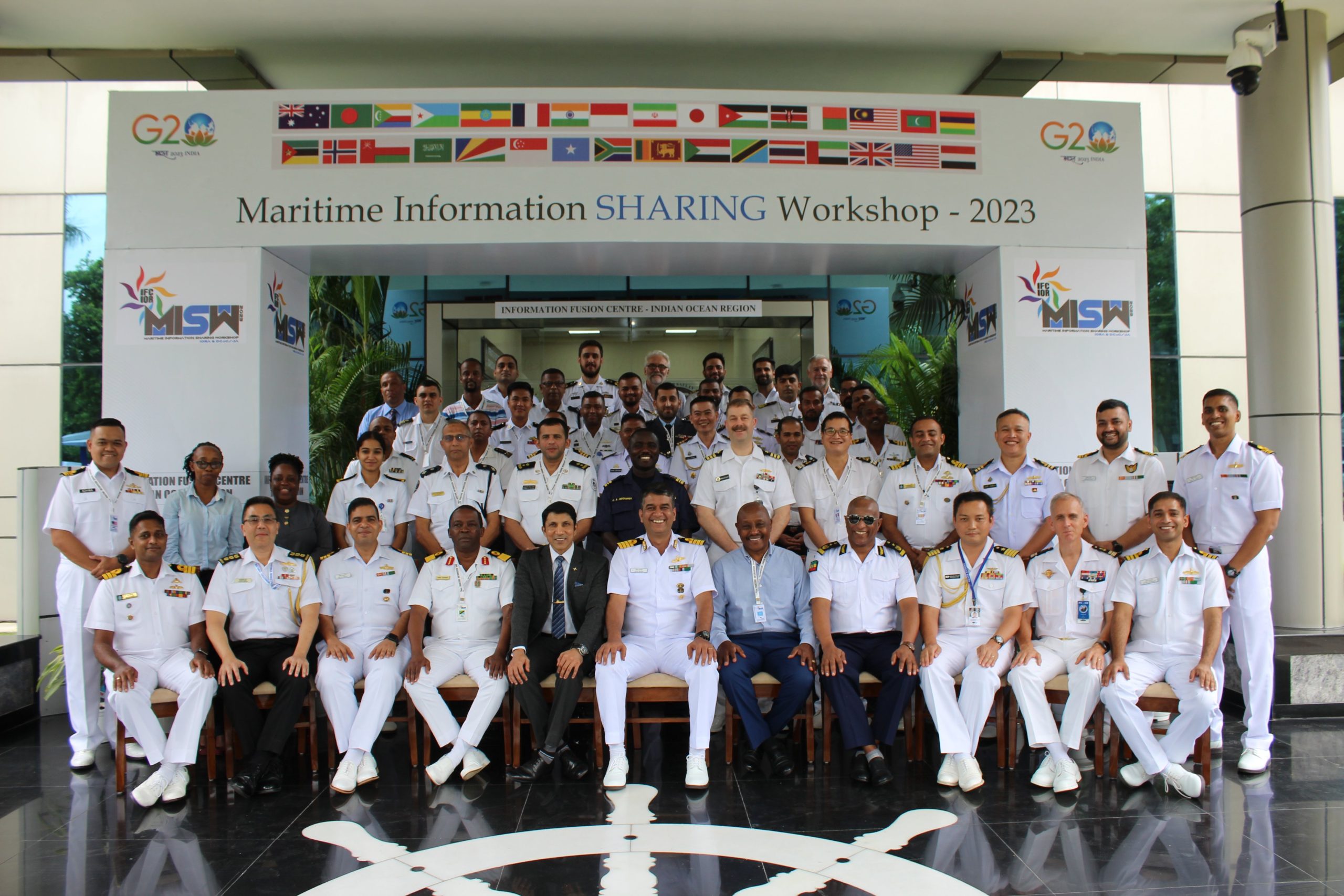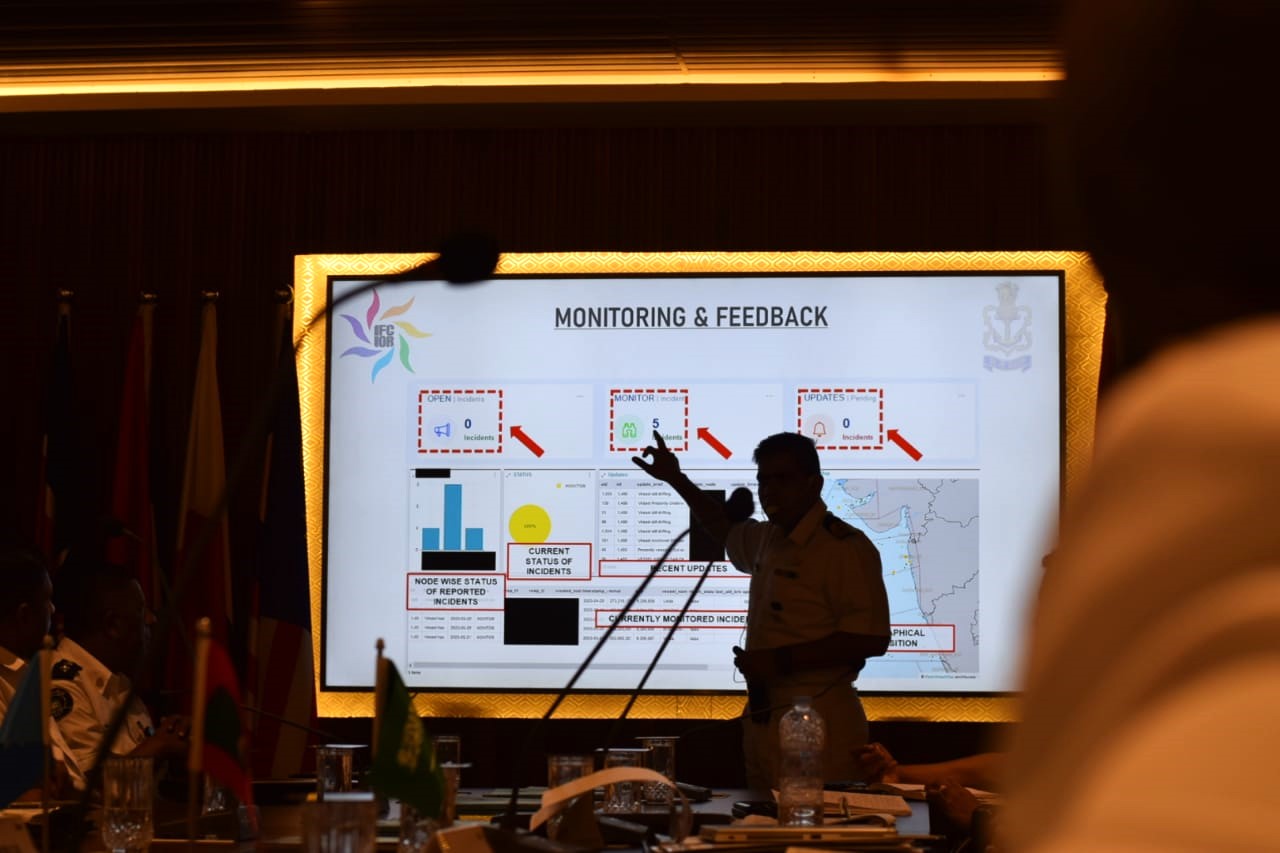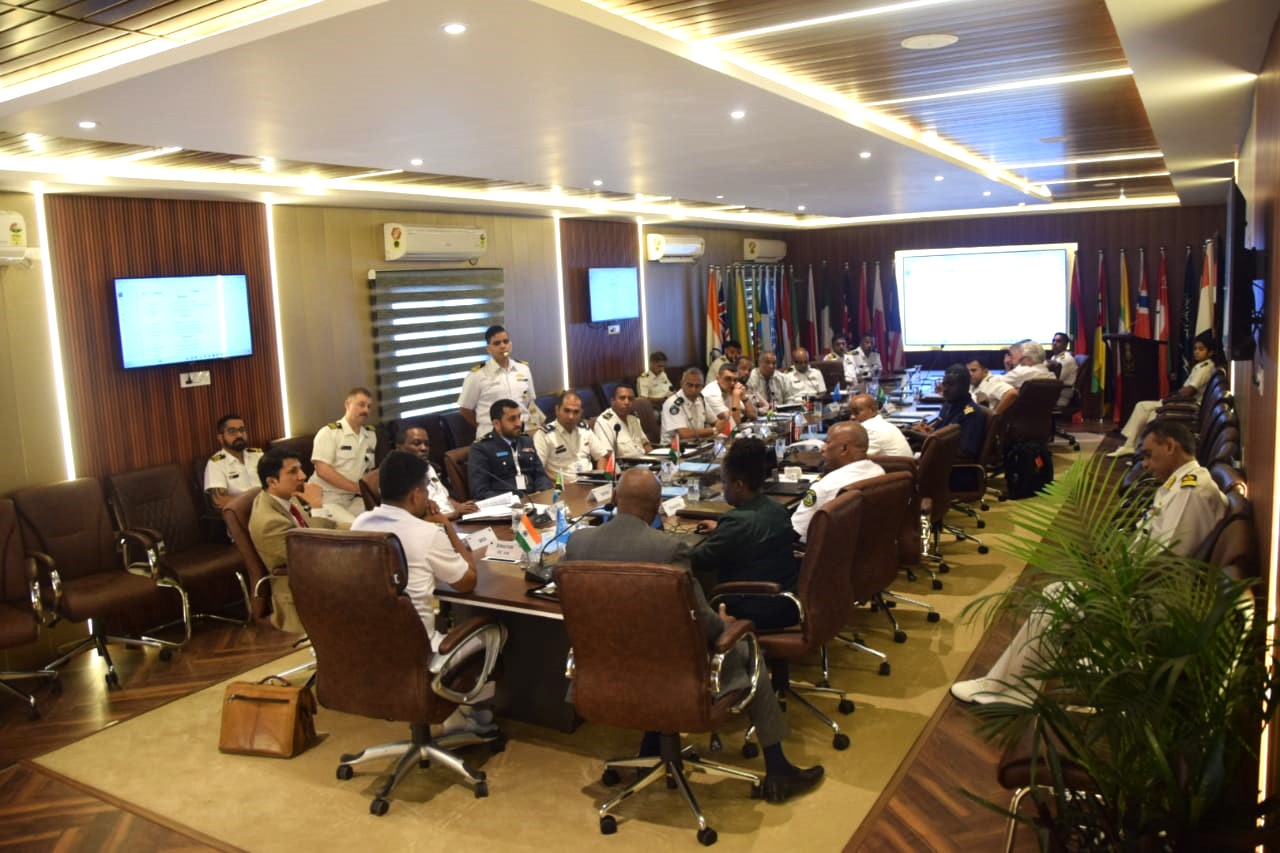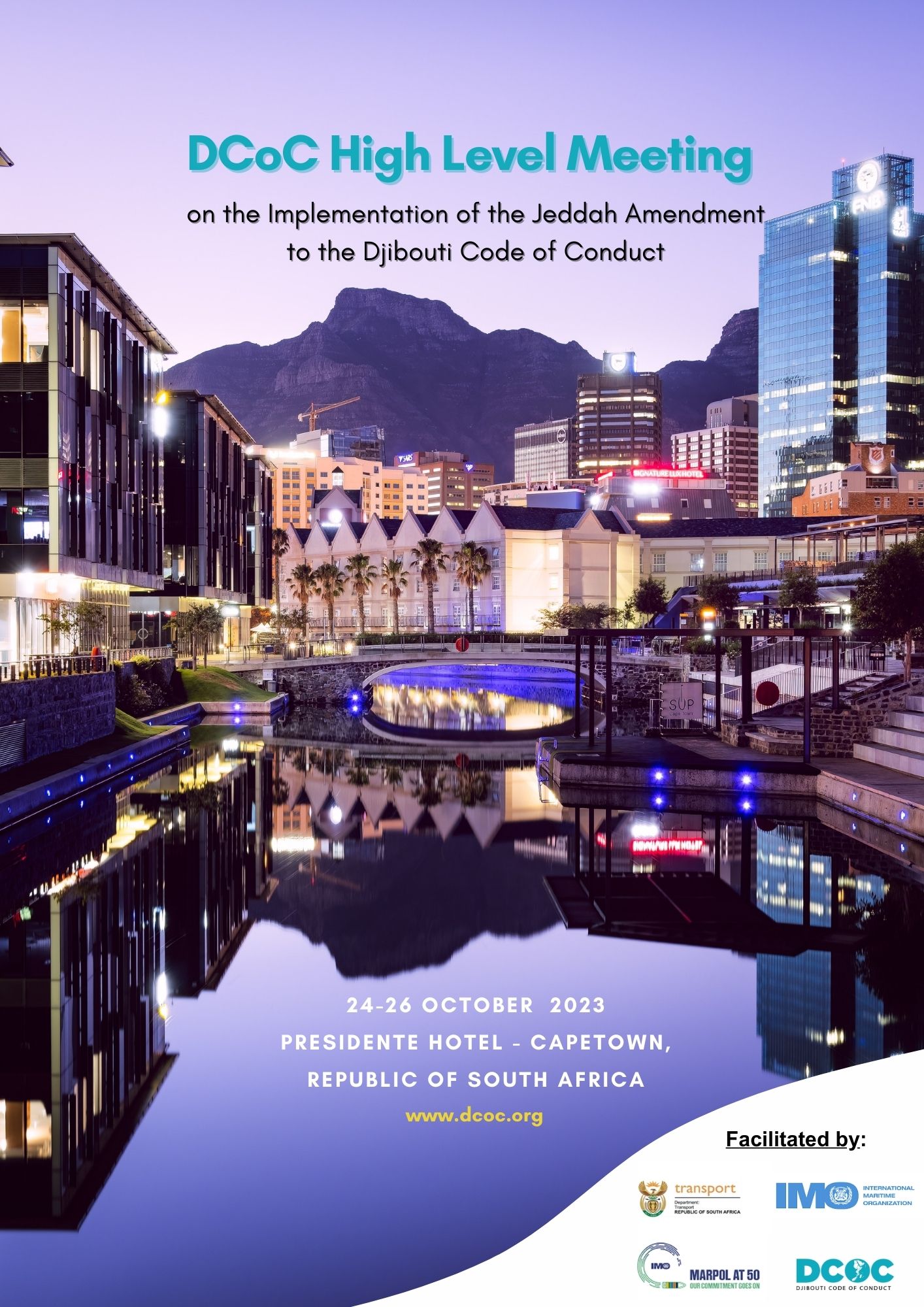India, DCoCJA fortify Collaboration Talks to Address MDA Challenges in Region
Marine Areas Beyond National Jurisdiction (ABNJ), also known as the high seas, are vast expanses of the world’s oceans that exist beyond the exclusive economic zones (EEZs) and national jurisdiction of any single country. These areas are essentially international waters and are not governed by any single nation. Mutual understanding and collaboration at multi-national and regional levels are prerequisites in addressing the surge of transnational organized crimes and threats in, among other international waters, the western Indian Ocean and Gulf of Aden region.
A three-day Maritime Information Sharing Workshop (14 -16 Sep 2023) held at India’s Information Fusion Centre – Indian Ocean Region (IFC-IOR), brought together participants from 31 countries of the Indian Ocean Rim Association (IORA) and the Djibouti Code of Conduct/ Jeddah Amendment (DCoC/JA).
In this workshop, participants explored complexities in the maritime domain, ways to bolster collective responses to maritime threats at sea, and the role of technology in enhancing Maritime Domain Awareness (MDA).

A visit to the IFC-IOR saw DCoC/JA States engage in solving MDA-related security scenarios during syndicated Maritime Security Exercises, discuss the regional Information Sharing Architecture, and refine the newly developed Standard Operating Procedures for the DCoC/JA information Sharing Network (ISN).
Vice Admiral Anup Singh (Rtd) pointed out that to obtain a complete maritime picture that leads to effective MDA constitutes both man-made and physical challenges. “No single nation can handle these challenges and threats, even in one region, and therefore a coordinated and collaborative approach is vital. There is also the need to work towards achieving a legal finish in the prosecutions of persons apprehended at sea by sealing gaps in the criminal justice system.”

“The implementation of the IMO model on the whole-of-government approach to maritime security will help address some of the key challenges identified at the national level, especially the lack of adequate coordination between agencies. The establishment of the multi-agency National Maritime Security Committees will ensure seamless coordination in dealing with maritime threats at sea and provide oversight for the National Maritime Information Sharing Centres (NMISCs),” said IMO’s Kiruja Micheni.

Commodore Parvataneni Nitin, (Director, Ministry of External Affairs) cited that the partnership between DCoC States and India is decided by common interests and threats over the Indian Ocean and therefore, collaboration from all parties is needful. Here are his sentiments:
***
The Maritime Industry Security Workshop (MISW) was established in 2019 to serve as a forum where professionals at the operational level in the field of maritime security worldwide can share and exchange their best practices. It followed the establishment of the IFC-IOR in Gurugram in 2018.

